|
This Sunday the Church celebrates the Feast of Divine Mercy, a fairly new feast day in the Church. Pope St. John Paul II, who declared Divine Mercy Sunday formally in 2000, stated that, “This [day] is the Easter gift that the Church receives from the risen Christ and offers to humanity.” I never understood that phrase more than when I went on pilgrimage to Poland. In the summer of 2016, I had the privilege of going to Krakow for World Youth Day. The pilgrimage was filled with many graces that I am still unpacking today. 2016 was declared an Extraordinary Jubilee Year of Mercy by Pope Francis, and World Youth Day was held in the country where the Divine Mercy devotion was birthed. Mercy and grace surely abounded that year. Early in the trip, we experienced a day that weighed heavy on our hearts. Our group leader announced that we would make a morning trip to the Auschwitz-Birkenau Concentration Camp Memorial and Museum. As a group we made the decision that, as a sign of respect for the more than one million people who lost their lives at that dark place, we would not speak while we were on the grounds. The silent walk through the memorial shook me to the core. The sadness was hard to comprehend, and the absence of God felt real. As we were nearing the end of the memorial, we came upon a tablet that read the same quote in different languages from all over the world. The quote began like this, “Forever let this place be a cry of despair and a warning to humanity…” That was my experience of the memorial: a cry of despair. After we returned to the bus, we departed for the Sanctuary of the Divine Mercy, where St. Maria Faustina Kowalska lived and is now buried. A basilica has been built as a shrine for Divine Mercy at the Sanctuary and was named “the Capitol of the Divine Mercy devotion” by St. John Paul II. The juxtaposition between Auschwitz-Birkenau and the Divine Mercy Shrine were too extreme for my heart. I was unprepared for the transition from a witness of utter despair to complete hope. Still in agony over our morning visit, I waited in line to get into the chapel where St. Faustina was laid to rest. In the chapel, Adoration of the Blessed Sacrament was also taking place. I was apprehensive to sit in the quiet with Our Lord and at the same time ready for some answers from Him. I walked into the chapel and received my answer from a familiar image hanging inside. In the chapel where St. Faustina is buried was a huge image that seemed to be made exactly for my desolate heart: the image of Divine Mercy; the image which came to St. Faustina in an apparition. It displays Christ in his glory blessing the world with one hand and touching his heart with the other. Two large rays beam out from his heart: one red and one white. There was Jesus with His open hands and open heart, summoning me. Jesus looked as if He was walking towards me, coming to me with His merciful love. The rays of red and white, representing the blood and water that come from His wounds, revealed His heart that desires to reach all of His children and reached me in that moment. Flowing from the heart of Jesus was the hope that was seemingly lost at Auschwitz and in the hearts of millions during WWII. For me, this was the answer to despair. At that moment I realized that although I have never experienced—and could never fathom—the suffering within the walls of that concentration camp, I could see that Christ’s mercy triumphs over all despair. It was triumphant during His perfect sacrifice on the Cross, and three days later at His Resurrection. Christ’s mercy does not hesitate to pierce our hearts, especially during times of suffering or despair in our lives. He only asks us to trust in that perfect mercy. Jesus asked St. Faustina to share with the leaders of the Church his desire that the first Sunday after Easter be declared and celebrated as the Feast of Mercy. It is no coincidence that St. Faustina died less than one year prior to the Nazi invasion of Poland. Perhaps Jesus appeared to her when He did because he anticipated the great need for mercy to flow over the world. Christ knows us, and longs to let His love and mercy pierce our hearts. He only asks us to trust in His sacrifice, His love, and His desire to know us and to be known by us deeply and intimately. When Christ revealed the image of Divine Mercy to Faustina, He asked for the image to be inscribed with three words: “Jezu, ufam Tobie” – “Jesus, I Trust in You.” As we celebrate the Feast of Divine Mercy this Sunday, let us trust in His infinite mercy and in His infinite love. Question for Reflection: How do you see God’s mercy alive in Scripture, history, or everyday life? To learn more about the Jubilee Year of Mercy, please click here.
0 Comments
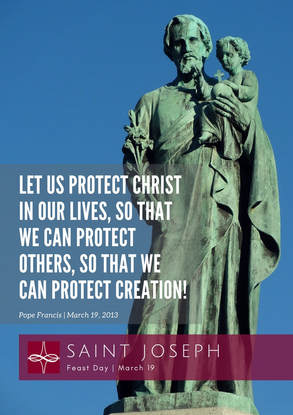 "In the Gospels, Saint Joseph appears as a strong and courageous man, a working man, yet in his heart we see great tenderness, which is not the virtue of the weak but rather a sign of strength of spirit and a capacity for concern, for compassion, for genuine openness to others, for love. We must not be afraid of goodness, of tenderness!" - Pope Francis (Homily for the Beginning of the Petrine Ministry of the Bishop of Rome, March 19, 2013) Blessings on this Solemnity of St. Joseph! As we celebrate this feast day of the Patron of the Universal Church, we also celebrate the fifth anniversary of the beginning of the Petrine ministry of Pope Francis. He chose this day particularly for this event and later inserted an invocation of St. Joseph into all the Eucharistic Prayers, not simply Eucharistic Prayer I (Roman Canon). Pope Francis not only invites us to see St. Joseph as protector of the Universal Church, but also calls us all to be protectors who live with tenderness that shows the love of Christ. What does it mean to be a "protector"? In the same homily quoted above, he offers us an answer, which he witnesses as pope. "In [St. Joseph], dear friends, we learn how to respond to God's call, readily and willingly, but we also see the core of the Christian vocation, which is Christ! Let us protect Christ in our lives, so that we can protect others, so that we can protect creation! The vocation of being a "protector", however, is not just something involving us Christians alone; it also has a prior dimension which is simply human, involving everyone. It means protecting all creation, the beauty of the created world, as the Book of Genesis tells us and as Saint Francis of Assisi showed us. It means respecting each of God's creatures and respecting the environment in which we live. It means protecting people, showing loving concern for each and every person, especially children, the elderly, those in need, who are often the last we think about. It means caring for one another in our families: husbands and wives first protect one another, and then, as parents, they care for their children, and children themselves, in time, protect their parents. It means building sincere friendships in which we protect one another in trust, respect, and goodness. In the end, everything has been entrusted to our protection, and all of us are responsible for it. Be protectors of God's gifts!" As one can see from the highlights above which link to an encyclical, two apostolic exhortations, and the bull of indiction of the Extraordinary Jubilee of Mercy, Pope Francis outlined in his inaugural homily some of the themes of the teaching of his pontificate. His actions toward those on the peripheries witness as well to how we can both protect and show tenderness, "responding to God's call" as St. Joseph did. For as he said also in his homily, "only those who serve with love are able to protect!" May the Charity of Christ urge us on! Today we celebrate the fifth anniversary of Pope Francis’ pontificate. In these short years, Pope Francis has done much to continue the work of his predecessors in building a culture of evangelization and inviting each member of the Church to live out their baptismal call as missionary disciples. Several important Church documents have been released throughout his papacy, including Evangelii Gaudium, the Apostolic Exhortation on the Proclamation of the Gospel in Today’s World, Laudato Si’, the encyclical on Care for our Common Home, and Amoris Laetitia, a post-synodal Apostolic Exhortation on Love in the Family. Pope Francis has participated in two World Youth Days, made roughly 22 international apostolic visits, and has canonized 885 saints. He called for the Jubilee Year of Mercy from 2015-2016. I would like to celebrate the fifth anniversary of his election by sharing some quotes that characterize his papacy and capture its tone.
1. A Church on Mission "I prefer a Church which is bruised, hurting and dirty because it has been out on the streets, rather than a Church which is unhealthy from being confined and from clinging to its own security… More than by fear of going astray, my hope is that we will be moved by the fear of remaining shut up within structures which give us a false sense of security, within rules which make us harsh judges, within habits which make us feel safe, while at our door people are starving. -Evangelii Gaudium, 49 Pope Francis envisions a missionary church—one with open doors to welcome people in, but also for each of us to step out and bring the Good News of Jesus Christ to the world. As Christians, it can be tempting to remain within the safety of our parish and Church community. However, Jesus calls us to “go out to the nations” and encounter the hurting world. Pope Francis reminds us of this evangelizing spirit entrusted to us by Jesus Christ and challenges us to be a Church on mission. 2. The Inherent Dignity of Mankind and Creation “Our insistence that each human being is an image of God should not make us overlook the fact that each creature has its own purpose. None is superfluous. The entire material universe speaks of God’s love, his boundless affection for us. Soil, water, mountains: everything is, as it were, a caress of God.” -Laudato Si, 84 About two years into his papacy, Pope Francis released his encyclical Laudato Si’, focusing on our responsibility as stewards of creation. No other pope has dedicated an entire encyclical to the care of creation. In doing so, Pope Francis reminds us that all of the created world helps us to glimpse and better know God Himself. Mankind is the pinnacle of creation, made in God’s image and likeness. In Laudato Si’, Pope Francis reminds us of each person’s inherent dignity, made with his or her own purpose, gifts, and mission. 3. The Transformative Power of Christ’s Love “Jesus’ love goes before us, his look anticipates our needs. He can see beyond appearances, beyond sin, beyond failures and unworthiness…He sees beyond this, to our dignity as sons and daughters, a dignity at times sullied by sin, but one which endures in the depth of our soul. He came precisely to seek out all those who feel unworthy of God, unworthy of others.” – Homily at Plaza de la Revolución during his Apostolic Journey to Cuba At the heart of the Christian life is an encounter with Jesus Christ. His love is transformative, life-changing. We encounter Christ in prayer, the sacraments, the parish, in one another. However, we cannot overestimate the importance of our prayer life—of moments throughout each day in which we enter into dialogue with God, offer up our work and sacrifices, remember the needs of others, or give God praise. When we carve out time each day for prayer, we are better able to know the look of Christ that goes beyond the worldly way of seeing things into our dignity as sons and daughters of God. 4. The Role of the Church in the Christian Life "We cannot understand Christ without his Church, just as we cannot understand the Church without her spouse, Christ Jesus, who gave his life out of love, and who makes us see that it is worth the price.” -Prayer Vigil for the Festival of Families in Philadelphia I love this quote because it sums up the relationship between Christ and His Church. We cannot know Christ apart from the Church, just as the Church cannot exist without Christ. Christ founded the Church in order to be a place of encounter with Him through the sacraments and through one another. We come to more fully know the love of God in the life of each parish. How can we create communities of encounter in our various parishes? Is the light of Christ truly shining forth in our communities? 5. The Messiness and Joy of Family Life “I thank God that many families, which are far from considering themselves perfect, live in love, fulfill their calling and keep moving forward, even if they fall many times along the way. The Synod’s reflections show us that there is no stereotype of the ideal family, but rather a challenging mosaic made up of many different realities, with all their joys, hopes and problems.” -Amoris Laetitia, 57 Pope Francis speaks realistically of human life and love. The family, the domestic church, is not perfect. We are called to learn and grow in love throughout our entire lives, just as we are called to learn and grow in holiness. The family is the place where love is mastered and refined. It is the foundation of society and of the Church. Pope Francis calls families to journey joyfully on the path of love. He invites us not to fear our imperfection, but to keep moving forward in hope and joy. 6. Not Letting Fear Impact Vocational Discernment “The work of discernment identifies our fears and can then help us to overcome them, opening us to life and helping us to calmly face the challenges that come our way. For us Christians in particular, fear must never have the last word but rather should be an occasion to make an act of faith in God… and in life!” -Message for World Youth Day Panama In preparation for the 2018 Synod on Young People, the Faith and Vocational Discernment and World Youth Day 2019 in Panama, Pope Francis spoke of the process of discernment, especially for young people today. Fear is often at the heart of our actions—or inaction. Christians, however, have no cause for fear. As we discern God’s call for our life each day, let us place our trust in Him and act with courage and boldness. God has created us for a unique mission that only we can fulfill in His Church. Let us discern his will for us, as Pope Francis encourages, “trusting that he will lead us to a good end.” 7. The Importance of Contemplating and Encountering God’s Mercy “We need constantly to contemplate the mystery of mercy. It is a wellspring of joy, serenity, and peace. Our salvation depends on it.” -Misericordiae Vultus, Bull of Indiction for the Extraordinary Jubilee of Mercy Starting in 2015, Pope Francis instituted the first Jubilee Year of Mercy in the Catholic Church. Throughout this time, he invited the Church to contemplate once more the merciful gaze of the Father and experience God’s mercy in our lives. We cannot be merciful without first having personally experienced the mercy of God. I loved that as a Church, we dedicated a year to contemplating this great mystery. We know God as Father, Savior, Creator, Just Judge, and many other titles. But how often to experience His mercy, as evidenced in the parable of the Prodigal Son and in the story of Jesus meeting the Woman at the Well? 8. Our True Identity “That is our real ‘stature,’ our spiritual identity: we are God’s beloved children, always. So you can see that not to accept ourselves, to live glumly, to be negative, means not to recognize our deepest identity…God loves us the way we are, and no sin, fault or mistake of ours makes him change his mind…God counts on you for what you are, not for what you possess…In his eyes, you are precious, and your value is inestimable.” -Homily at World Youth Day Mass in Krakow At World Youth Day in Krakow back in 2016, Pope Francis reminded youth and young adults of an incredible universal truth : that our identity lies in being God’s children. In a world so often focused on our careers, material possessions, prestige, or online presence, Pope Francis gets to the heart of our identity as being completely loved by God. It’s easy to forget that we are loved simply because we exist. We all hold a valuable and irreplaceable space in God’s heart. By being most authentically ourselves, we are better able to fulfill our mission within His kingdom and become the saints He wants us to be. 9. Using Technology and Social Media Wisely “Communication has the power to build bridges, to enable encounter and inclusion, and thus to enrich society…Words can build bridges between individuals and within families, social groups and peoples. This is possible both in the material world and the digital world.” -World Day of Communication 2016 We live in a world saturated by social media, technology, and widespread communication. Used irresponsibly, these can isolate and distract mankind. Pope Francis encourages people today to use technology and social media in order to promote a culture of encounter and accompaniment. He challenges us to be “digital citizens” who are not afraid to use technology to spread the Gospel. 10. Being People “For Others” “Love has no alibi. Whenever we set out to love as Jesus loved, we have to take the Lord as our example; especially when it comes to loving the poor.” -Message for the First World Day of the Poor In 2017, Pope Francis called for the first World Day of the Poor—a day in which we act not only in word, but in deed in order to alleviate poverty and accompany those on the margins of society. Pope Francis encourages the world to give and not to count the cost, to love as God first loved us. In a culture of consumerism, we can easily forget to think about our neighbor or those less fortunate than ourselves. Pope Francis reminds us of the importance of giving freely, drawing near to the poor, embracing them, and being transformed through that process. Click here for free resources on Catholic Social Teaching. Question for Reflection: Do you have a favorite quote from Pope Francis’ papacy that’s not listed above? Share it in the comment section below and let us know why it’s powerful for you. Over the past week (November 13-19), many parishes in America have been celebrating National Bible Week, annually organized by the United States Conference of Catholic Bishops to help us grow deeper in love and knowledge of the scriptures in service of our faith. It’s also a fitting way to cap off the Jubilee of Mercy which officially ends on November 20. To commemorate the occasion, the bishops have chosen as the week’s theme, “The Bible: A Book of Mercy.” The Bible is not just a moral guide, a historical document, or literary achievement. While it may be all those things, it’s so much more for us as Catholics. As the Catechism states, the Bible is where “the Church constantly finds her nourishment and her strength” (CCC 104). I’d like to reflect on three areas in the Word of God where we can all find nourishment: prayer, study, and mission. Prayer “When you read the Bible, God speaks to you; when you pray you speak to God”. – St. Augustine The same Holy Spirit who inspires the scriptures also awakens the desire in our hearts to pray. In my experience, it’s often the case we hear (rightly) about the importance of reading and praying with the Bible, but we’re not exactly sure how to do so. That’s where the time-tested practice known as Lectio Divina, or “Sacred Reading,” is a truly wonderful spiritual gift to the Church. Pope Emeritus Benedict XVI made a special point of mentioning lectio divina in Verbum Domini, n.86-87. Just a couple of weeks ago, I shared the method of lectio divina with the RCIA class I lead and challenged them to give it a try. The next week, one of the participants said how much it helped his experience of praying with the Bible, especially how to begin and conclude a time of prayer, and how to spend the time between. If you don’t know where to start or passage to choose, try just using the Gospel of the day in the Church’s calendar of readings at Mass. That’s a great way to provide continuity day-to-day as well as connect us to the prayer of the universal Church. Study “Ignorance of scripture is ignorance of Christ.” – St. Jerome While it’s certainly true that knowing about Jesus is not the same as knowing Jesus, the saints and great teachers of the Church through the ages constantly testified that a faithful study of the Bible leads to real intimacy with God. Undertaken in a spirit of humility and truth, study is even an act of love. In this spirit, the USCCB highlights that this year marks the 51st anniversary of the Second Vatican Council’s Dogmatic Constitution on Divine Revelation, Dei Verbum, which was a monumental statement on the place of the Bible in the life and teaching of the Church. National Bible Week provides us with a good reason to read Dei Verbum, or at least part of it. If you don’t have time to read the whole thing, check out the first section on “Revelation Itself”. It contains the essential foundation of our faith that God is the source of all revelation and that “through divine revelation, God chose to show forth and communicate Himself and the eternal decisions of His will regarding the salvation of men” (n. 6). In other words, if we want to know the Lord’s will for us, we have to turn to the scriptures. Mission “Faithfulness in mercy is the very being of God.” – Pope Francis In Pope Francis’ Wednesday catechesis series quoted above, our Holy Father makes the point that the Bible is truly a book of mercy, and that mercy is always accompanied by a call to mission. The words of scripture resist our all too human and artificial attempts to separate beliefs from action. One of the things my bishop, Archbishop Lori of Baltimore, is fond of repeating is, “Just because it’s the end of the Year of Mercy does not make it now the Year of Judgment or Severity!” If we lose contact with the words of scripture, we run the risk of losing touch with the concrete Corporal and Spiritual Works of Mercy that the Bible continually challenges us to make an everyday part of our lives. If you are looking to go deeper in the Bible or just need help getting started, you can check out the great resources available at places like the Catholic Apostolate Center Prayer and Catechesis page and the USCCB’s National Bible Week website to help guide your journey. Mercy. It seems simple enough. If I condescend to offer you understanding and even compassion, then I am being merciful, right? That is pity, not mercy. Mercy provides us with the opportunity to offer love of God through love of neighbor. We also experience mercy from God who calls us to move beyond self and sin and live lives rooted deeply in the experience of the love of God which calls us to always more as St. Vincent Pallotti would say. Growing in the virtue of mercy takes time and experience. We grow in mercy through not only our experience of mercy from God, but also our living it through the Works of Mercy. The Spiritual and Corporal Works of Mercy give us many opportunities to live mercy in our daily lives. Over the course of this Jubilee of Mercy, I had the opportunity to pass as a pilgrim through the holy doors at various churches, including the four Papal Basilicas in Vatican City and Rome and the National Holy Door at the Basilica of the National Shrine of the Immaculate Conception in Washington, D.C. Passing through a door does not make us more merciful, even if we have done all that is required for a plenary indulgence. The door is simply symbolic of crossing the threshold into a way of living as a pilgrim in this world – mercy lived. Mercy lived does not permit others to be taken for granted, marginalized, or discriminated against from conception to natural death. Mercy lived moves us into places, spaces, and moments where others may be timid, fearful, or disdainful to tread or do so only out of condescending pity rather than moved by love of God and love of neighbor. Mercy lived witnesses Christ in everyday life in ways large and small, wherever and with whomever we find ourselves. No one is exempt from the Mercy of God as Pope Francis just taught again this past Saturday: “Dear Brothers and Sisters: In this, the last of our special Saturday Audiences for the Holy Year of Mercy, I would like to stress the importance of inclusion. God’s mercy, which excludes no one, challenges us to be merciful and open to the needs of others, especially the poor and all those who are weary and burdened. We, who have experienced that love and mercy, have a part to play in his saving plan, which embraces all of history. In his mercy, God calls all men and women to become members of the body of Christ, which is the Church, and to work together, as one family, in building a world of justice, solidarity and peace. God reconciled mankind to himself by the sacrifice of his Son on the cross. He now sends us, his Church, to extend that merciful embrace to our brothers and sisters throughout the world. The arms of the great colonnade surrounding this Square symbolize that embrace. They remind us not only of the Church’s mission to the human family, but also of our own call to bear faithful witness to God’s inclusive love through the mercy, love and forgiveness we show to others.” This is Mercy Lived!
"The confession of evil works is the first beginning of good works." -St. Augustine I’ll come right out and say it: I dislike going to Confession. I really do. And so I avoid it like the plague. We all have our struggles in faith, and this is my biggest one. “Why do I have to seek out a priest, another human, and tell him all the bad things I’ve done? Can’t I just talk to God directly? Doesn’t God hear everything in your heart?” We’ve all heard these questions—challenges, really—about the need for regular visits to the confessional. After all, God does know everything in our hearts. We can talk to him directly, and we should do so often! But we need more than just that internal dialogue with God. Our faith, after all, isn’t one lived alone. St. Paul tells the Romans, “We, though many, are one body in Christ and individually parts of one another.” (Romans 12:5) I may be a toe, you may be an earlobe, but we all, collectively, make up the one Body of Christ in the Church. So if that’s what we truly believe, and one of those parts gets hurt, the whole rest of the body feels that pain. If you stub your toe, the whole of your body stops everything and focuses on that pain. So, too, when we stub our spiritual toe, we create a ripple throughout the rest of the Body. We could talk at length about the nature and effects of sin, but that’s for another discussion. The point is that each of our sins have an effect, not just on ourselves and on God, but on the whole of the Church, too. And so we have three people or groups to reconcile with when we’ve sinned: ourselves, our Creator, and the larger Body of which we are each a part. And who better to forgive our sins than a priest? He’s a spiritual father, a representative of the Church, and, most importantly, someone who acts “in persona Christi,” or “in the person of Christ.” By virtue of his ordination, each priest has been given some pretty awesome powers. He can baptize people, he can bless places and things, he can call down the power of God onto simple bread and wine, miraculously turning it into Christ’s Body and Blood. So if he can do all those things, can’t he also exercise the power Christ gave the Apostles after his Resurrection? “Whose sins you forgive are forgiven them, and whose sins you retain are retained.” (John 20:23) That’s crazy! But it’s our faith, and it comes from Christ himself. We profess this in the Apostle’s Creed: “I believe…in the forgiveness of sins…” Now we’re all thinking, “Okay, that’s all well and good, but Confession is still too uncomfortable.” And you’re right! It is. That’s why I dislike going. I don’t like being uncomfortable. I don’t like to acknowledge the messy parts of life, including my own failings and shortcomings. I don’t like to admit that I’m wrong, especially when I keep doing the same wrong thing over and over again. But every time I finally buck up the courage (sometimes after months or years) to walk into a confessional, I’m never disappointed. The result is always the same: God has forgiven me and wiped the slate clean. And I feel so good about it! It’s not that I’m afraid of God’s mercy. In fact, I crave it. The problem is that I’m too afraid of my own self, of my own fragile and broken humanity, to even ask for this mercy. In my heart of hearts, I don’t believe I deserve it. And that’s the thing: none of us deserve it. Not one of us can ever be sorry enough, contrite enough, penitent enough, to make amends for what we’ve done and continue to do over and over again. We can never fully make it up to God; that’s why he sent his Son. Jesus took the sins of the whole world on his shoulders, beaten and bloodied though He was, until he became sin itself: “For our sake he made him to be sin who did not know sin, so that we might become the righteousness of God in him.” (2 Corinthians 5:21). He took every sin each of us will ever commit, carried them up on the cross, and died as payment for it. He’s already paid the price for us. It’s like a spiritual gift card that never expires, but we have to use it to take advantage of the gift. That’s why Confession is so important: the mercy is guaranteed; we have but to ask for it. Pope St. John Paul II once said, “Confession is an act of honesty and courage - an act of entrusting ourselves, beyond sin, to the mercy of a loving and forgiving God.” In this Jubilee Year of Mercy, may we all be honest and courageous enough to do that. Whether you just went to Confession last week or, like me, have been putting it off for way too long, be courageous and just go. Let the Year of Mercy have some personal meaning for you, and let God forgive you for what He’s already paid for upfront. For more resources on Confession and the Jubilee Year of Mercy, please click here. I still remember as if it were yesterday. There I was—a junior in high school with my sights set on my then life’s goal of playing college soccer—listening to the doctor tell me the results of the recent X-ray: “You have a stress fracture in your left ankle.” My heart sank, and I immediately focused on the most apparent, inevitable consequence of that injury: I would have to sit out the whole season, meaning I would miss crucial recruiting opportunities. To say the least, I was discouraged as I stood before the rather large and ominous mountain that so suddenly impeded the pursuit of my goal. I instantly began feeling sorry for myself and let anger creep into my heart. Then, in what I now look back upon and gratefully remember as “the moment of mercy,” I heard God’s gentle voice speak to the depths of my heart and tell me, “Carolyn, there’s more to life than soccer.” With my heart pierced by that voice, my desire to play college soccer disappeared. I soon began making decisions that would lead me to the people and places that God had in mind for me to more deeply encounter His mercy and to discover the actual goal of my life. During my first year of college, the Lord sent a spiritual director into my life who asked me a life-changing question: “Carolyn, what is the goal of your life?” At that time, I couldn’t honestly answer, since I couldn’t yet put into words what the Lord had begun stirring in my heart through the stress fracture event. Yet, over the next few years of college as I continued spiritual direction and developed a more habitual prayer and sacramental life, the Lord began to show me the answer to the question: Communion with God—holiness—is the goal of my life, because Love is the meaning of life. In a special way during this Jubilee Year of Mercy, the Church is called to be “a living sign of the Father’s love in the world” (Misericordiae Vultus 4). At the heart of the Jubilee Year of Mercy, we find the Person of God the Father, whose love is both the origin and goal of our life. The Year of Mercy is a special time of grace in the Church, and Jesus invites us to daily re-encounter our Heavenly Father, to be renewed by His love—which alone gives meaning to our life—and to joyfully share the gift of His love with those whom the Lord entrusts to us each day. At a General Audience on December 9, 2015 (the day after the opening of the Year of Mercy), Pope Francis emphasized the purpose of the Jubilee Year: Turning our gaze to God, our merciful Father, and to our brothers and sisters in need of mercy, means focusing our attention on the essential contents of the Gospel: Jesus, Mercy made flesh, who renders the great mystery of the Trinitary Love of God visible to our eyes. Celebrating a Jubilee of Mercy is equivalent to placing once again the specific nature of the Christian faith, namely Jesus Christ, the merciful God, at the center of our personal life and that of our communities. In other words, Pope Francis is saying that the invitation during this Jubilee Year of Mercy is to “return to the basics” of our faith: to enter more deeply into the mystery of the Holy Trinity, which is “the central mystery of Christian faith and life” (CCC 234). In fact, Pope Francis begins his letter for the Jubilee Year with words which aim to “sum up the mystery of the Christian faith”, namely, that “Jesus Christ is the face of the Father’s mercy” (Misericordiae Vultus 1). Jesus’ whole earthly mission was to reveal the truth about God’s inner life of love and man’s vocation to that love that originates from the Father’s heart (John 17:3; CCC 514-518). This is why Jesus tells Philip, “He who has seen me has seen the Father” (John 14:9). Everything Jesus says and does reveals the Father (CCC 516) and aims at “restoring fallen man to his original vocation” (CCC 518) of love. Thus, the Jubilee Year of Mercy is a special moment of grace to daily re-orient the gaze of our hearts towards the merciful gaze of the Father that tenderly awaits us. This gentle and loving gaze of the Father reveals the love that alone is the origin, goal, and meaning of our life. As Pope Saint John Paul II says, “Man and man’s lofty calling are revealed in Christ through the revelation of the mystery of the Father and His love” (Dives in misericordia 1). May we live this Jubilee Year by creating the space in our daily lives—particularly through prayer and frequent reception of the Sacraments—to encounter Jesus and to let our merciful Father love us. We ask Mary, Mother of Mercy, to help us open our hearts and be more receptive to the Father’s love. May we give her permission to use us as instruments of God’s mercy in the lives of others so that we can share the gift of His love with those whom God entrusts to us. "To let our lives speak a story of evangelization, to live out the Gospel, we must humble ourselves like Mary who lived as a handmaiden of the Lord."
Does your life speak a story of evangelization? I think about this question, and it is easy to think about the moments where I have really fallen short. I could have been kinder and more loving with a student who really needed me today. I could have been quicker to help a colleague in need. I know that I have missed clear opportunities to be Christ to others. As Christians in the age of the New Evangelization, we have been called more than ever to think about these moments and act with grace to better love God and share his love with others. The story of the Visitation deeply teaches us about bringing Christ to others. Mary has just learned that she is with child; yet she travels to Judah after she finds out that her relative, Elizabeth, is six months pregnant in her old age. Although Luke does not elaborate on the details, we can only imagine the sacrificial love beaming through this selfless act: Mary, in her first trimester of pregnancy (which is often filled with morning sickness and other trials), gives up time at home to care for a fellow expecting mother. Her heart is filled with joyful love as she physically brings Jesus to Elizabeth and her family. She is the “Theotokos,” or God Bearer. Elizabeth affirms Mary’s faithfulness and the gift of bringing Christ to her: When Elizabeth heard Mary’s greeting, the infant leaped in her womb, and Elizabeth, filled with the holy Spirit, cried out in a loud voice and said, “Most blessed are you among women, and blessed is the fruit of your womb. And how does this happen to me, that the mother of my Lord should come to me? For at the moment the sound of your greeting reached my ears, the infant in my womb leaped for joy. Blessed are you who believed that what was spoken to you by the Lord would be fulfilled.” Luke 1:41-45 It is clear that Mary’s life speaks a story of evangelization to others. Mary’s life and witness call us to be God Bearers to others, too. This may manifest in a physical way, as Mary physically brought Jesus in her womb to Elizabeth. During my time as a Catholic missionary for middle school and high school students, we reflected on the Visitation by bringing a friend to kneel with us in front of Jesus in the Eucharist in Adoration, physically bringing those we love closer to Christ. It was so humbling, and deeply moving to physically soak up Christ’s presence by being brought to him by someone you love. Perhaps Mary’s evangelization story calls you to bring others to Christ physically in the Eucharist, inviting a friend to attend Mass or Adoration with you. In this Jubilee Year of Mercy, Pope Francis explained in his Lenten message that “in the corporal works of mercy we touch the flesh of Christ in our brothers and sisters who need to be fed, clothed, sheltered, visited” (Pope Francis, 2015). Perhaps in your evangelization story you are called to serve those who need to know or be reminded of Christ’s love by your service. Whether directly or indirectly, as Catholics we trust that God makes every gift and sacrifice more perfect when done in his name. To let our lives speak a story of evangelization, to live out the Gospel, we must humble ourselves like Mary who lived as a handmaiden of the Lord. When we submit to the will of God and “do whatever he tells you” (John 2:5), surely we make Christ’s presence more known to others. Today we are called to let our lives speak a story of evangelization, just as the Visitation teaches us. We can entrust ourselves to Mary’s mission of bringing Christ to others, and know that through her patronage and guidance, our attempts to bring Christ to others will bear fruit in more lives than one. Pope Saint John Paul II entrusted his papacy to Mary with the simple prayer, “Totus Tuus,” or “totally yours,” knowing that Mary leads all hearts to her son, Jesus Christ. Let us, too, live in the spirit of the Visitation and follow the great evangelizers who have brought us closer to Jesus through Mary. Let your life speak a story of evangelization. To learn more about our call to let our lives speak a story of evangelization, visit our New Evangelization Resources page. Alyce Shields is a teacher in Washington D.C Tomorrow the Church celebrates St. Catherine of Siena, a 14th century tertiary Dominican and Doctor of the Church, who is renowned for her ardent prayer, peacemaking, and writing. Her life is filled with stories that reflect a transparent faith in the power of God’s intervention, her desire for unity within the Church, and her gifts in healing and touching the lives of others.
I discovered St. Catherine a few years ago when I read this passage. She writes these words with the same devotion and absolute trust with which she lived her life by: “I don’t want you to yield to weariness or confusion, no matter what may trouble your spirit. No, I want you to keep the good, holy, and true faithful will that I know God in his mercy has given you. Be glad…celebrate! Without any slavish fear take courage. Don’t be afraid, no matter what has happened, no matter what you see coming. Take courage for perfection is very accessible” (excerpt from her Letter to Br. Raimondo of Capua at Avignon). Whenever I read these words, they indicate to me that St. Catherine must have experienced trials herself and had her faith tested. Don’t we all struggle with weariness or battle the armies of confusion? St. Catherine doesn't want us to get caught up in the messiness of our sins and plights but rather in the will of God that will lead us through our struggles. The reason we should "be glad and celebrate" is because God's will is there to guide us through the midst of it all. And this, as St. Catherine reminds us, is a wonderful gift of God's great mercy, which is able to penetrate into our past, present, and future experiences. God’s will can sometimes seem so hard to understand, a mystery that is more hidden than it is found. Many often ponder, "What is God's will for my life? and ask, "Lord, what is your will…what should I be doing?” But St. Catherine knows God's will is more simple and apparent than we think. He doesn't hide it so much as reveal it or deter us so much as lead us to it. We should “take courage” because God has revealed everything in the perfection of Christ his Son, who lived among us and entered into the human experience. He is so near, so accessible. What is God’s will for us then except to grow into the perfection of Christ? St. Paul reminds us that, “God has called [us] through our Gospel to possess the glory of Jesus Christ.” (2 Thes. 2:14) Every day we are invited to grow towards sanctity and heaven by rising with Christ in the midst of our circumstances. We are to mature in love so as to become ourselves fully in Christ. If we strive for this first, God will surely lead us down the narrower paths of our lives. God is always at work in us if only we open ourselves to him. I invite you to think and pray about your own life. How have you grown in virtue over the years? This is evidence of God’s grace alive in your heart and mind! St. Catherine points directly to Christ, the Fountain of Life that is never depleted of its mercy and compassion! In him we really can do anything. Let us then “take courage” in our lives and “celebrate” Christ and the mercy of God! We need not be afraid! Thank you St. Catherine for your life and example! Pray for us, that we can fight the good fight and become ourselves fully in Christ. May we experience deeper the reality of God’s great mercy. For more resources on the Jubilee Year of Mercy, click here. We are often our own harshest critics. This is the case in my own life, and sometimes I look up in exasperation at God and tell Him I’m tired…of myself. In our culture of busy-ness and perfectionism, high achievement and the constant thirst for more, it’s tempting to balk at our deficiencies, cringe at our weakness, run from our blemishes. How could I have said that? Why did I fail at that again? How have I not learned? These thoughts run through our defeated minds if we forget in this Jubilee of Mercy to be merciful to ourselves. So often, we turn to shame, annoyance and frustration when we fall, sin or come face-to-face with our humanity. I imagine this is how the woman at the well felt as she went to get water at the hottest time of day. Divorced and remarried multiple times, she was seen as unclean by her Samaritan kinsmen. She avoided the other villagers at all costs in order to protect herself from their condemning gaze. There was one gaze, however, that she was powerless against: His. It was a gaze far more surprising than all others. A gaze not of condemnation, but piercing in its persistence and compassion—the gaze of love from God Himself. What must it have felt like to look up in the noon day heat and meet His gaze? What must it have felt like to be seen, known, and loved by the Son of Man? This is Christ’s eternal gaze upon all of us. If you’ve already experience it, you can relate to the Samaritan woman. If not, I invite you to look up from your well and meet Him there. How He waits for us—the Christ! How He goes out to our man-made wells of sin and shame, of selfishness and pride, of indifference and bitterness to meet His children, to remind them that they are loved! He comes to you, to me. The Lover pursues His beloved. The Shepherd pursues His sheep. The Father pursues the prodigal son. God desires us. Encountering this love and mercy leaves no room for indifference or fear. We long to reciprocate this love, as the woman at the well did. She left her jar, the very reason she came to the well, in order to proclaim the Christ to her entire town—the town she had avoided at all costs (cf Jn 4:28-29). This is radical. This is the conversion that results from the beautiful and delicate balance of love and justice, mercy, and truth. We are loved even when we have deemed ourselves unlovable. We are desired even when we remain indifferent. We are sought when we hide. And today we are being called and sent forth to bring His gaze to the nations. Why? Because we were created for greatness, though we are pilgrims living in a fallen world. We were created for life with God Himself; to live blameless, spotless, white as snow. Yet we live in a world in which we are often warring against God, ourselves, one another, and nature. In this Jubilee of Mercy, we are reminded that our scars or weaknesses should not scandalize us to the point of paralyzation or despair. We can no longer be imprisoned by our sin because we have a Savior—one who calls us to transfiguration and gives us the hope of the Resurrection, which we celebrate in 10 days. The piercing love of God elevates us to be salt of the earth, light to the nations. If we live in the certainty of being loved, we cannot refuse to be gentle and merciful to ourselves. Only in receiving His merciful love each day will we be able to love ourselves purely in the way that enables us to purely love our fallen brothers and sisters. Rather than cower at our weakness, going to the well at noon, let us embrace it—giving ourselves fully and completely to the One who can transform our weakness for His glory! May we cling to Him, not to ourselves, surrendering our folly to His wisdom, our sin to His perfection, our indifference to His love, our brokenness to His wholeness. Leave your jar at the well and go forth. For more resources to guide you throughout this Jubilee of Mercy, click here.
Paul boldly reminds Christians, “our citizenship is in heaven” (Phil 3:20). In a sense, our single most political act on this earth is not who we vote for in the next election, but our Baptism. In baptism, we discover our truest identity as adopted sons and daughters of God, and together become “one in Christ Jesus” (Galatians 3:27-28). But as citizens of heaven, we also live as “aliens and sojourners” (1 Peter 2:11). This Jubilee Year of Mercy issues an invitation and challenge for Catholics to transform what society regards as ‘political problems with political solutions’ into encounters with God’s grace and mercy. Borrowing a phrase from Biblical scholar Walter Brueggemann, Christians are not simply called to meet issues with more political machination, but greater “prophetic imagination.” When Christians do not actively imagine and enact truthful and merciful alternatives to social evils, pragmatism and deceit can lay deep roots in our society. In the Book of Leviticus, an important aspect of the ancient Jubilee Year involves extending mercy to a group of people the Bible calls resident aliens, outsiders living among the Israelites who belonged to no tribe. They occupied a vulnerable position in society and were not always welcomed, but God’s law was meant to protect them as legal equals (cf. Ex 12:49; Lev 24:22). Today our Church takes seriously the responsibility to stand up for the human dignity of migrants and refugees. While speaking on the topic of pastoral care for migrants and itinerant peoples, Pope Francis expressed his hope that, “our Christian communities really be places of hospitality, listening, and communion.” Hospitality In Leviticus 19, God instructs Moses and the Israelites about harvesting the land, not to “reap the field to its very edge,” for, “… these things you shall leave for the poor and the alien” (Lev 19:9,10, cf. Deut 24:20-21). A problem many of us succumb to in a consumerist culture (myself included) is living without margin. We max out our schedules and credit cards so that we simply cannot make room in our day or budget to give freely, or receive someone in need when opportunity arises. As Pope Francis recently put it, “If the Jubilee doesn’t arrive to the pockets, it’s not a true Jubilee.” The scripture and tradition of the Church prescribe counter-cultural hospitality toward the stranger. Exemplified in monastic tradition, the Rule of Benedict in Chapter 53 puts forth Jesus’ words, “Let all guests who arrive be received like Christ” (Matthew 25:35). Moreover, in a culture where nearly every human experience is branded and marketed, we should not confuse hospitality with customer service. Listening “Listen… and administer true justice to both parties even if one of them is a resident alien… Give ear to the lowly and to the great alike” (Deut 1:16,17). There is no justice or mercy without listening to the oppressed and marginalized. The theologian Dietrich Bonhoeffer once wrote: “The first service that one owes to others in the fellowship consists in listening to them. . . It is God’s love for us that He not only gave us His Word but also lends us His ear. . . Many people are looking for an ear that will listen. They do not find it among Christians, because these Christians are talking where they should be listening. But he who can no longer listen to his brother will soon be no longer listening to God either” (Life Together. New York: Harper & Row). When we listen, we may even discover someone who is no longer a stranger but a friend. Communion God had to remind the Israelites, “You shall love the alien as yourself; for you too were once aliens in the land of Egypt,” (Lev 19:34). The New Testament reiterates: “Once you were ‘no people’ but now you are ‘God’s people’; you ‘had not received mercy,’ but now you have received mercy” (1 Peter 2:10). Pope Francis powerfully stated that communion cannot exist where Christians seek to build walls instead of bridges. Communion happens through solidarity and accompaniment, not the gospel of, “God helps those who help themselves.” As Catholics, our communion is best expressed through the Holy Eucharist, where we “participate with the whole community in the Lord’s own sacrifice” (CCC 1322). Recent celebrations of the Mass across the USA-Mexico border witness the power of the Eucharist to unite Christians separated along national/political divides. In a climate of fear and self-preservation, the Eucharist consumes us, lest we consume each other. Political debates will rage this year. As Christians, let us consider how the Jubilee of Mercy cannot be separated from our particular concern for migrants and refugees in the form of the prophetic witness of Christian hospitality, listening, and communion. To learn more about the Jubilee of Mercy, visit our free resource page by clicking here. Recently, during a parish mission for Lent that focused on the Jubilee of Mercy, I found that a simple review of the corporal and spiritual works of mercy had a profound impact on those who participated. My short reflections on the works of mercy were not meant to be at time of group guilt about what had not been done, but instead provided an opportunity for the participants and for me to reflect, and then - hopefully - act. In the reaction of the participants, I witnessed a revival of faith and a rekindling of charity that, I believe, will lead to deeper living as apostles or missionary disciples. God's mercy and love are offered not just for a moment, but forever. Lent is a perfect time to experience again God's mercy and live well the works of mercy. As we continue through the season of Lent, we strive to know Jesus Christ more fully through the Lenten disciplines of prayer, fasting, and almsgiving. Sometimes almsgiving is seen as something simply monetary. If almsgiving, however, is not only related to our treasure, but also to our time and talent, then we can see how easily the corporal and spiritual works of mercy can help us express all three aspects of this Lenten practice. Pope Francis invites us to reflect on the corporal and spiritual works of mercy in his Lenten Message, "For all of us, then, the season of Lent in this Jubilee Year is a favorable time to overcome our existential alienation by listening to God's word and by practicing the works of mercy. In the corporal works of mercy we touch the flesh of Christ in our brothers and sisters who need to be fed, clothed, sheltered, visited; in the spiritual works of mercy - counsel, instruction, forgiveness, admonishment and prayer - we touch more directly our own sinfulness." May the charity of Christ urge us on to live well the works of mercy!
The Extraordinary Jubilee of Mercy officially began on December 8, 2015, when Pope Francis opened the Holy Door at St. Peter’s Basilica. Each of the four Major Basilicas in Rome features a Holy Door opened in the Jubilee year. This Jubilee marks the first in the history of the Catholic Church in which cathedrals and select churches and shrines in dioceses across the world were invited to designate Holy Doors outside of Rome. Pope Francis celebrated this historic gesture by opening the Holy Door at Bangui’s Notre-Dame Cathedral in the Central African Republic. On December 13th, the Third Sunday of Advent, congregations celebrated the Rite of Opening of Holy Doors in local churches. To promote the visitation of these Holy Doors around the world, the Pontifical Council for the Promotion of the New Evangelization has compiled a list of the registered Doors of Mercy worldwide. The Holy Doors are prophetic symbols of the mission of mercy of the universal Church embodied in every local parish. For example, even amidst the turmoil in the Middle East, every parish in the Iraqi archdiocese of Erbil will feature a Holy Door. There are Holy Doors covering the globe from the Island of Fiji to a frigid shrine in Alaska. In 1300, Pope Boniface VIII is inaugurated the first Holy Year in the Catholic Church. Since then, the Catholic Church ordinarily celebrates a Jubilee every 25 years. The last Jubilee Year was in 2000 under the pontificate of Pope Saint John Paul II. Because a full 25 years have not passed, this Jubilee Year of Mercy is considered an “extraordinary” year. The Holy Door at St. Peter’s Basilica consists of 16 panels by the Italian sculptor Vico Consorti telling the history of salvation—which is the story of God’s mercy. Cardinal Virgilio Noe, the Master of Ceremony for Pope Blessed Paul VI, likened the Holy Door to “verses of a hymn, which sing of God’s infinite mercy… They enlighten every moment of any situation with the certainty of divine forgiveness.” The Church’s celebration of the Jubilee and the opening of Holy Doors has developed over time, but the tradition and symbolism find their roots in the Old Testament. Following seven seven-year periods (the number seven representing God’s rest and the Sabbath), the fiftieth was a Year of Jubilee for the Israelites (Lev 25:8-10). This was a time specifically devoted to practicing mercy: debts were forgiven, slaves were set free, and the land was given rest by letting it lay fallow. Another symbol of mercy from the Old Testament includes Moses producing water by striking a rock (Numbers 20:11). We too receive abundant grace through our pursuit of mercy. Crossing the “threshold” of the door has also featured prominently in the theology of the holy door. In crossing the threshold, we pass over from one state in life to another. As Pope Saint John Paul II encouraged the world to “cross the threshold of hope,” Pope Francis similarly enjoins Christians to cross the threshold of mercy. Liturgists and anthropologists call this transforming experience “liminality,” (limina meaning “threshold”). The same symbolism shapes the tradition of Bishops, who are required to make regular Ad Limina (literally “at the threshold”) visits to Rome to visit the tombs of the Apostles Peter and Paul and meet with the Pope so they may prayerfully renew their mission of mercy and love for the diocese they shepherd. Mercy is a truly transformative. We are changed upon entering and exiting the church through the Holy Doors. We encounter mercy in the Body of Christ gathered in the sanctuary, as well as in the confessional, and are then sent out to show mercy. Our mission is mercy. Jesus is the one who opens the door to all who seek mercy (Luke 11:9). The door testifies that the Church is always more than just a building; it is testimony that Jesus is “the gate,” (John 10:9), and those who enter find mercy and salvation. For more resources on the Jubilee of Mercy, please visit our Jubilee of Mercy portal. I have a confession to make - I have not always understood nor appreciated Mary’s vital role within my own life. Growing up as a Catholic, I heard people speak about Mary’s role in the Church, yet I never had an encounter with her. Throughout high school, I knew of a few different Marian devotions, but I never connected with them as a young male. I always saw Marian devotions as something my female classmates did, while my male classmates and I looked to St. Joseph as our role model. Yet, when I arrived at college, I met young men of faith who were devoted to our Blessed Mother and some who had even consecrated themselves to Mary. These were normal guys, who had a deep love for Mary, one I had never encountered before. When they started to talk about the impact she had in their lives, their faces beamed with delight. Their love for Mary was palpable. I was intrigued by their witness, yet it was not until this past summer that I had an encounter with Mary, an experience that changed my spiritual life. This past summer I was introduced to the devotion of Mary, Undoer of Knots. When I prayed with this devotion, the Holy Spirit truly touched my heart. It made sense now why I asked for Mary’s intercession, instead of just always praying directly to the Father. Day by day, as my devotion to Mary intensified, I noticed a change in my own spiritual life. The more deeply I fell in love with Mary, the greater sense of peace I felt and the closer I became to her Son. St. Vincent Pallotti wrote how each of us should “place [ourselves] in the hand of the Madonna… and do not let anything worry you.” St. Vincent understood that when we are devoted to Mary, we should be at peace, trusting that our Mother will care for us and guide us closer to her Son. Therefore, he urged his followers to always strive to cultivate a deeper relationship with Mary, knowing nobody can love Mary as much as her Son loves her. One way in which St. Vincent’s devotion to Mary manifested itself was that he wore a Marian icon around his wrist, so whenever people would attempt to kiss his hand, a common practice of St. Vincent’s day, they would instead venerate an image of Mary, Mother of Divine Love. While this is a beautiful witness, this is not the only way in which to cultivate a deeper relationship with Mary. During this Extraordinary Jubilee Year of Mercy, now is the perfect time to take stock of your own relationship with Mary. Maybe take a couple minutes out of each day to encounter Mary. Your prayer asking for Mary’s intercession does not need to be complex or long. You may wish to meditate on an image of Mary and pray: Mary, I look to you as my guide, as my help. Help me to become more merciful to all people I encounter. Help me to become merciful like Your Son. Amen.
"On this holy night, while we contemplate the Infant Jesus just born and placed in the manger, we are invited to reflect. How do we welcome the tenderness of God? Do I allow myself to be taken up by God, to be embraced by him, or do I prevent him from drawing close?" - Pope Francis (Christmas Homily, 2014) The past year has seen many moments that called out for the "tenderness of God." Challenging moments of war, suffering, natural disaster, and human-caused neglect - seemingly harsh, rather than tender. Some might use the harshness of the world as an excuse to move away from God or render God irrelevant. Yet, there is still a seeking in the human heart given by God who desires to embrace us and draw us close. When we look at the scene of the Nativity, do we see the tenderness of God in the midst of the harsh reality that Mary and Joseph were not shown tenderness in their need, but instead were rejected? The Son of God came into the world in poverty. At the end of his earthly life, he was rejected once again. The Father, though, continued to show mercy, love, and tenderness by raising him up, opening the way to salvation, and leaving us a share in Christ's mission of love and mercy until he comes again. During this Jubilee of Mercy and beyond, may we go about doing Christ's mission well through living tenderness, reviving faith, rekindling charity - living the corporal and spiritual works of mercy. These works of mercy are practical ways for us to welcome and share the "tenderness of God." On behalf of the board, staff, collaborators, and advisors of the Catholic Apostolate Center, may you have a Blessed Christmas and a good New Year! You will be remembered by me at Masses during the Christmas season! May the charity of Christ urge us on!
|
Details
Archives
July 2024
Categories
All
|
About |
Media |
© COPYRIGHT 2024 | ALL RIGHTS RESERVED

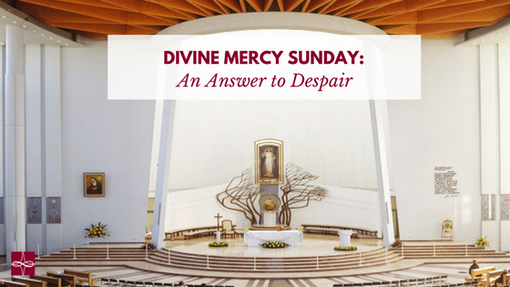

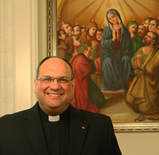
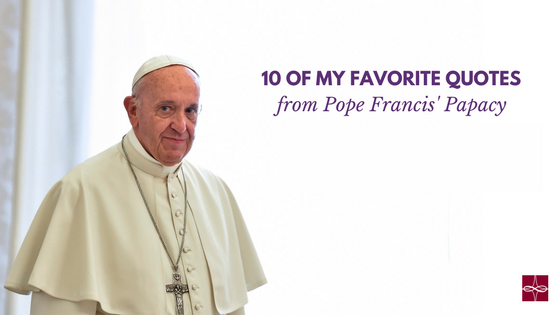

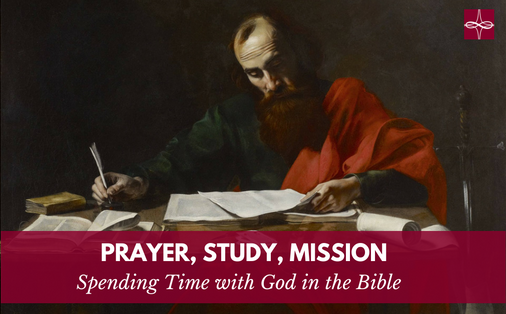

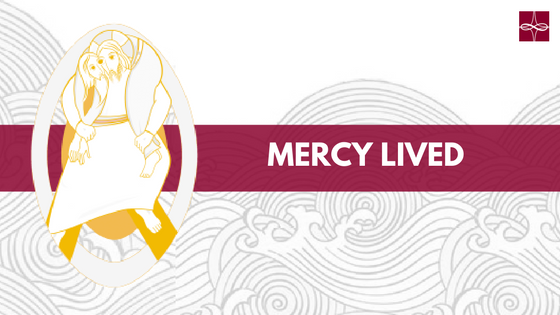
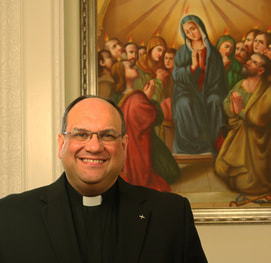
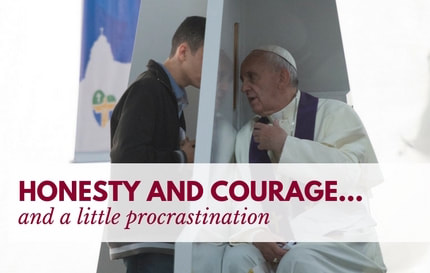

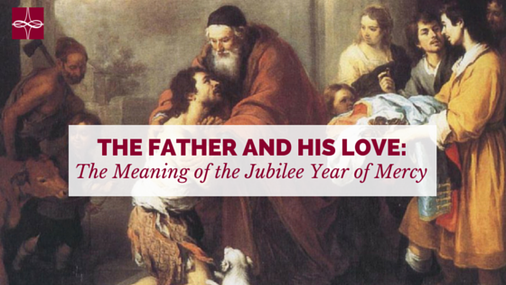

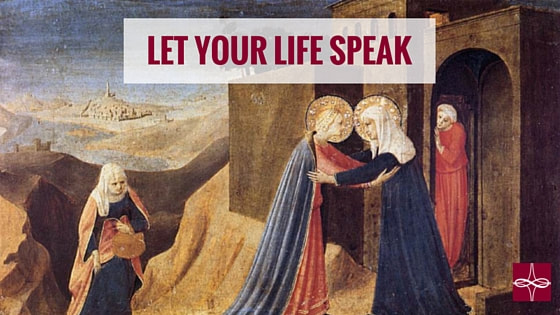
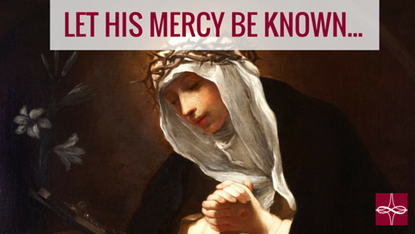






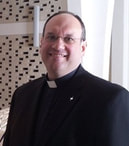
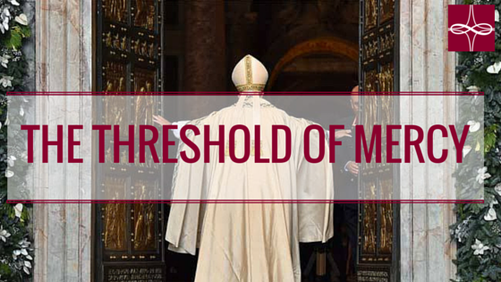



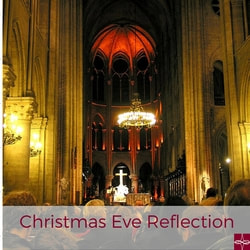

 RSS Feed
RSS Feed